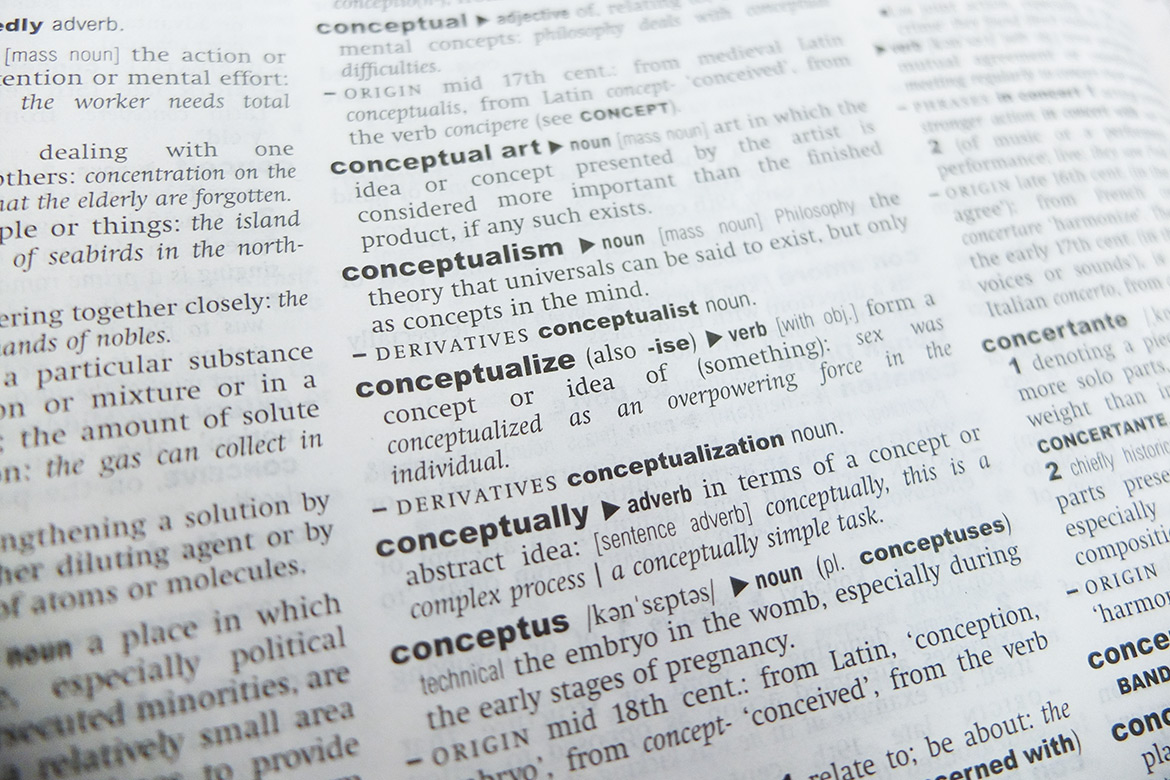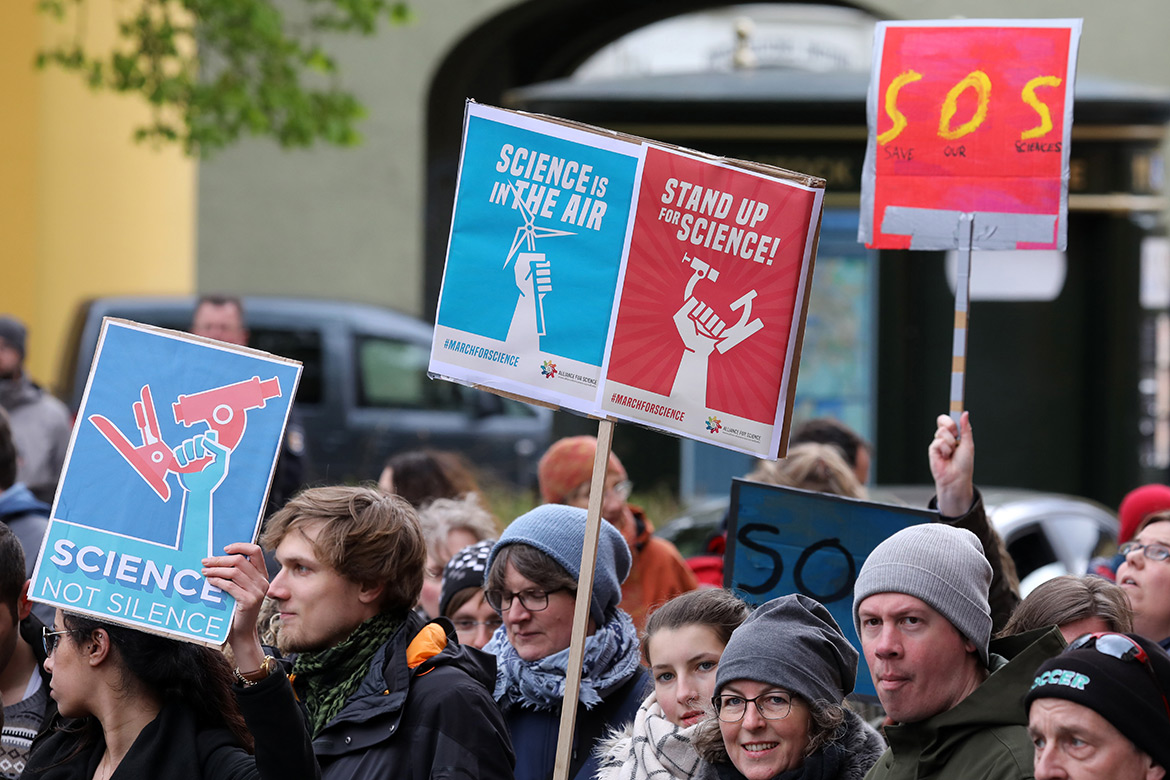How to protect academic freedom
Terence Karran is fighting for a European agreement to enshrine researchers’ rights: a ‘Magna Carta’ for science.

Terence Karran’s work brought about a change in Danish law. Image: Neil Baker
In 2009, Terence Karran proposed the introduction of a general agreement to define and protect academic freedom – what he calls a ‘Magna Carta’ of researchers’ rights. This British social scientist will speak in Bern on 8 December 2017 at the conference Academic freedom: A universal right at stake!?.
At first glance, Europe doesn’t seem to have a huge problem with academic freedom. Why the need for a Europe-wide agreement like your proposed Magna Carta?
True, the majority of states in Europe protect academic freedom, either in their constitution or through protection of freedom of speech. But I would describe academic freedom as a contested concept, insofar as different nation states see it in different ways. Academic freedom in the United Kingdom, for example, is a neglected right, because we don’t have a constitution, so there is no protection even for freedom of speech. A Magna Carta would co-define the entire thing.
Knowledge is created by suggesting that the status quo is wrong in some way. Academic freedom allows scholars to get up and say: “I know that so far we’ve said this, but I believe it to be wrong”. That is why it is important.
Where did your inspiration come from?
In the United States, the American Association of University Professors has the Red Book, which is a definition of academic freedom and a guide for protecting it. Academic freedom in the United States is protected under freedom of speech, but this only refers to public universities. Private ones could completely disregard this if they so wished. The Red Book was designed to protect academic freedom in such situations, and private institutions like Harvard or Yale sign up to it voluntarily.
But would European countries abide by an entirely voluntary system?
Well, look at the European Credit Transfer System, which enables students to move credits between different States: this agreement was entered into by European countries on a purely voluntary basis. What happened was that four countries initially, and later a larger number, decided to come together to standardise the way in which credits for university modules are counted and defined. So if the universities in all the nation states in Europe would sign up to the Magna Carta, like they did to the ECTS, they could achieve the same for academic freedom.
So why would universities comply without a legally binding document?
I recently finished some work looking at the world university rankings, and the extent to which universities protect academic freedom. What this showed very clearly was that those universities that protect academic freedom are more likely to have high rankings. So academic freedom, in essence, is a badge to determine a good research and teaching university. That’s what makes universities comply.
You said earlier that your own country, the United Kingdom, neglects academic freedom as a right.
Yes, we drafted a report on this in May 2017 for the UK Universities and Colleges Union. We compared the results with the rest of Europe, and it is evident that academic freedom is very poorly protected here, because the United Kingdom does not have a constitution. Some of the results show that a large proportion of academics are afraid to speak out for fear of some kind of retribution against them.
Do you mean from the government? Or the public?
From peers, actually. The results were quite surprising. They showed clearly that many abuses of academic freedom are perpetrated by academics against academics, rather than by managers. That’s the situation. There are also issues around students’ academic freedom, which is an area that hasn’t been researched very much. In Europe, freedom of speech on campus is a serious issue.
And how would a Magna Carta help with that?
It would enshrine and define certain rights, specifically the freedom of speech, which, remember, is actually open to interpretation. In the United States, this freedom is interpreted by the Supreme Court. Given this interpretability, the way academic freedom can be exercised may alter over time. For example, burning the American flag on campus was once seen as freedom of speech, but then there was a decision that this was un-academic. So it’s not allowed any more.
Should this Magna Carta protect academic freedom from an over-enthusiastic application of political correctness?
Academic freedom itself is a professional freedom enjoyed by academics in pursuit of their teaching and research, and this is what the Magna Carta seeks to enshrine. For example, the only time an academic’s views should become a problem would be if they begin commenting on issues that have nothing to do with their teaching. It would not be appropriate for a chemistry teacher to get up in class and say: “Donald Trump is the worst president I’ve ever met”. It would, however, be applicable for a professor of political science to say: “It is believed that Donald Trump is a bad president”. There is a subtle difference, and this is something the Magna Carta could explore.
Are there any countries that already have good protection in place?
In countries like Austria, Bulgaria and Croatia, academic freedom is actually mentioned in the constitution. Denmark’s constitution mentions freedom of research and artistic creation. In other countries, academic freedom is protected through particular legislation. For example, Ireland’s 1997 Universities Act places academic freedom within the protection of the law.
With the Magna Carta, academics would know their basic freedoms are protected, whether they are in the Netherlands, Poland, Portugal or Romania. They would be much more likely to move around the place.
And would it give academics a stronger voice?
Of course, if academics didn’t fear that what they were saying was going to be nullified or criticised, they would be much more likely to speak out. That would again help the creation of new knowledge. If Europe wants to become a knowledge economy, based on the creation and derivation of research results, the whole continent would need to consider greater, rather than less, academic freedom.
More research outputs also means more interest from private companies. How would your Magna Carta chime with the need for intellectual property protection and industrial secrecy?
It is difficult to say. Of course, when knowledge becomes important, companies try to get university agreements to prevent the sharing of any results that form the basis for intellectual property. I would not say that universities are bribed, but they are quite actively told that large amounts of money become available by working with industry. Clearly, where research has the capacity to create a lot of income, companies will try to make sure they have control. It is likely that, as we move more towards a knowledge economy, this will increase. And that makes protection of academic freedom even more important.
There are already some charters for academic freedom, for example the UNESCO document…
Yes, UNESCO did produce a recommendation on the state of higher education personnel, and it recommended that academic freedom should be protected. Most countries in Europe are signatories to that document. The idea with such documents is that if countries or institutions sign up, their contents will become integrated into the higher education system, and eventually pass into law. There are many instruments of law that actually have little legal standing, but because they have been observed for so long they continue to be observed. However, the UNESCO charter is regularly ignored.
In what way?
Take the example of Denmark. Around 2009 the higher education law there was changed in a way that took governance away from the staff body, and introduced a hierarchical system of managers and boards with external members. The Danish universities association made an appeal to UNESCO that academic freedom was no longer protected. The government had to set up an international evaluation committee to assess the law, and as a result of that the law was changed. So this shows that it is possible to improve the situation of academics and academic freedom through guidelines, it is just very difficult.
So what’s the next step?
The next step will be to put agreements in place. Maybe we can get some help from the Council of Europe, which has done work in this area. Then we need to try and seek government agreement on this. What could also happen is a reform of the European Bill of Rights, which would protect very basic human rights. Thereafter, what will be needed is a more specific bill or document, like the Magna Carta, that would protect academic freedom.
Inga Vesper is a freelance journalist and Senior Editor at Research Europe. She lives in London.
T. Karran: Academic Freedom in Europe: Time for a Magna Charta? Higher Education Policy (2009)




